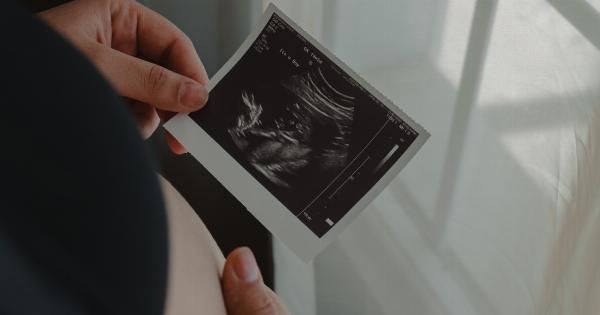Alcohol is a powerful teratogen, meaning it can cause birth defects and developmental disorders in a developing fetus.
When a pregnant woman drinks alcohol, it crosses the placenta and enters the bloodstream of the fetus, where it can interfere with normal development, cell division, and growth.
Physical Effects
Alcohol can cause a wide range of physical abnormalities in a developing fetus, including:.
- Fetal alcohol syndrome (FAS): This is a combination of physical, behavioral, and intellectual abnormalities that occur in babies who are exposed to alcohol in utero. The hallmark physical features of FAS include a small head, facial abnormalities (such as a thin upper lip and small eye openings), and growth deficiencies. Babies with FAS may also have abnormal brain development, which can cause problems with memory, attention, and social skills.
- Structural malformations: Alcohol has been linked to a wide range of structural defects, such as heart defects, brain abnormalities, skeletal deformities, and facial dysmorphology. These malformations can lead to lifelong disabilities and health problems.
- Low birth weight: Alcohol use during pregnancy can result in low birth weight, which increases the risk of mortality and morbidity in infancy.
- Preterm birth: Women who drink during pregnancy are more likely to experience preterm labor and delivery, which can be associated with numerous health problems.
Behavioral and Cognitive Effects
In addition to physical anomalies, alcohol use during pregnancy can also cause a range of behavioral and cognitive problems in children. These include:.
- Developmental delays: Children who were exposed to alcohol before birth may experience developmental delays in areas such as speech and language, fine motor skills, and socialization.
- Cognitive deficits: Alcohol can cause structural abnormalities in the brain, which can result in cognitive deficits, such as deficits in attention, memory, processing speed, and executive function.
- Behavioral problems: Children with FAS and other alcohol-related disorders are more likely to have behavioral problems, such as hyperactivity, impulsivity, aggression, and difficulties with social interaction.
Effects of Timing and Amount of Alcohol Use
The effects of alcohol on a developing fetus can depend on factors such as the timing and amount of alcohol use. The first trimester is a critical period of development, during which the fetus is particularly vulnerable to the effects of teratogens.
However, alcohol use throughout pregnancy can cause damage at any stage.
The amount of alcohol that a woman drinks during pregnancy also plays a role in determining the extent of fetal damage.
High levels of alcohol consumption are more likely to cause FAS and severe birth defects, while lower levels of consumption can still cause developmental delays and other problems.
Prevention and Treatment
The best way to prevent the harmful effects of alcohol on a developing fetus is to avoid alcohol entirely during pregnancy.
Pregnant women should also avoid binge drinking, which is defined as consuming four or more drinks in a single occasion, as this can be particularly harmful to the fetus.
If a pregnant woman has a problem with alcohol, it is important to seek treatment as soon as possible. Treatment options may include therapy, support groups, and medication-assisted treatment.
Conclusion
Alcohol can have a wide range of harmful effects on a developing fetus, including physical anomalies, cognitive deficits, and behavioral problems. The best way to prevent these problems is to avoid alcohol entirely during pregnancy.
If you have a problem with alcohol, seek treatment as soon as possible to protect your health and the health of your baby.































